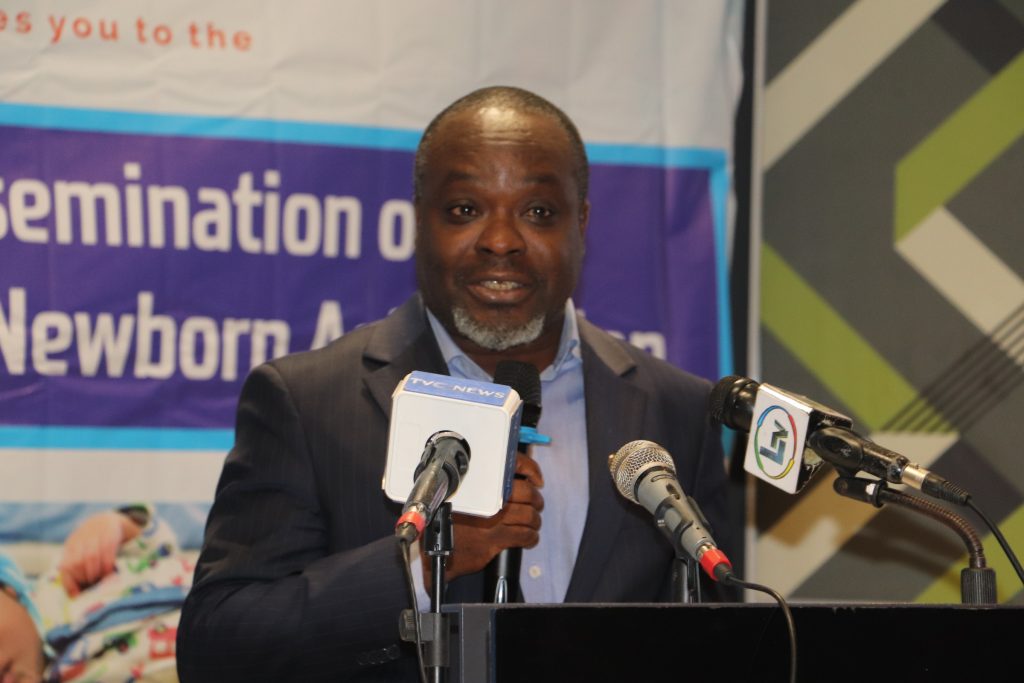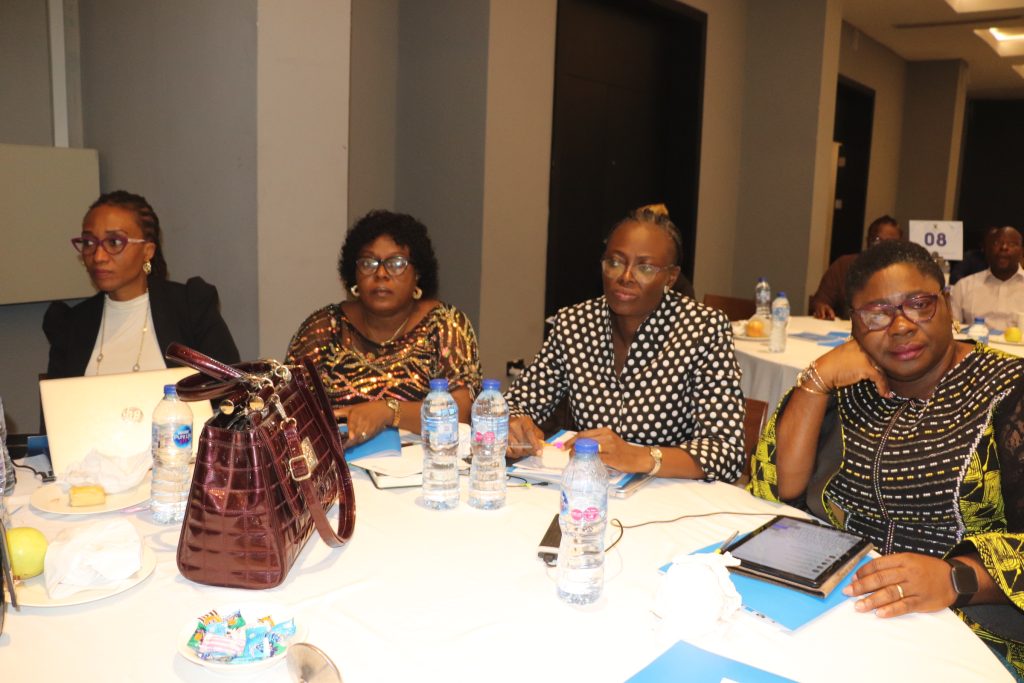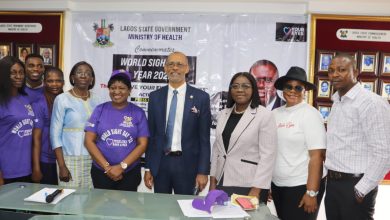LAGOS UNVEILS PLAN TO REDUCE NEWBORN DEATHS




… Restates Commitment to Elimination of Neonatal Mortality, Stillbirths
Lagos State Government has launched a document that contains strategies to accelerate progress towards achieving the vision to reduce and end preventable newborn deaths and stillbirths in the State titled: Lagos State Every Newborn Action Plan (LaSENAP).
The document which was unveiled and disseminated to health sector stakeholders at the Radisson Blu Hotel, Ikeja, was developed in line with the Nigerian Every Newborn Action Plan (NiENAP) and the Lagos State Strategic Health Development Plan II (SSDPII).
Speaking at the launch of the document, the Permanent Secretary, Ministry of Health, Dr. Olusegun Ogboye noted that the LaSENAP document is aimed at scaling up evidence-based and cost-effective interventions that will serve as a concerted effort towards translating global, national and state commitments into a meaningful change for newborns.
While explaining that the LaSENAP document was developed in line with NiENAP and SSDPII by making use of 10 thematic areas and presenting the intervention packages required to improve newborn health through a four-pronged approach, Ogboye opined that implementing LaSENAP will help reduce neonatal mortality in Lagos and Nigeria.
The Permanent Secretary disclosed that Lagos State has made significant progress over the years in improving maternal and child health indices, stressing that this is consistent with the improvement of the State health system of providing quality maternal and neonatal care.
He added the significant progress recorded by Lagos is a result of its strengths and opportunities which include strong political will, continuous engagement with professional bodies, active collaboration with the private health sector, continued human capital development of health workers, donor agencies and partner support, hardworking and committed health workforce and dedicated budget line for child health intervention.
While unveiling the document, Ogboye urged all relevant agencies of government, developmental partners, civil societies, the private sector and other stakeholders to join hands with the Ministry of Health to mobilise necessary resources towards the full implementation of activities in the policy document.
Earlier, the Chief of UNICEF, Lagos Field Office, Dr. Celine Lafoucriere noted that the launch and dissemination of the LaSENAP document is a significant milestone for thousands of newborns in Lagos whose fundamental right to survival is about to take a positive turn.
She added that the development and dissemination of the plan is a testament to the Lagos State Government’s commitment to prioritising children’s health and well-being and a positive move towards achieving the SDG target for reducing neonatal deaths in Nigeria
Commending the Lagos State Government for its all-inclusive system of governance and collaboration with relevant stakeholders in improving the health of citizens, the Chief of UNICEF Lagos Field Office said that UNICEF is fully committed to working with the State Government to support the acceleration efforts as outlined in the action plan to reduce newborn deaths and provide quality, efficient and accessible healthcare for every mother and child.
The Director, Family Health and Nutrition, Dr. Folashade Oludara noted that the LaSENAP document embodies the collective wisdom and expertise of the State technical teams, civil society organisations and community leaders.
Oludara added that the State Government has also achieved remarkable milestones in caring for older children through targeted strategies including routine immunisation, integrated management of childhood illnesses, home-based care, diarrhea control, infant and young child feeding amongst others.
Giving an overview of the LaSENAP document, the Programme Coordinator, Dr. Taiwo Johnson explained that the seven-chapter document presents intervention packages required to improve newborn health using a four-pronged strategy which includes; the promotion of facility-based deliveries at scale, addressing equity issues, strengthening of community-based intervention, strengthening facility readiness to provide quality care for newborns and provision of quality care for newborn with a focus on labour birth and immediate care after birth during the first week of life.
Dr. Johnson noted that the vision of the document is to achieve a state where the deaths of newborns are eliminated and every woman delivers safely with all newborns surviving and developing to achieve their maximum potential.


